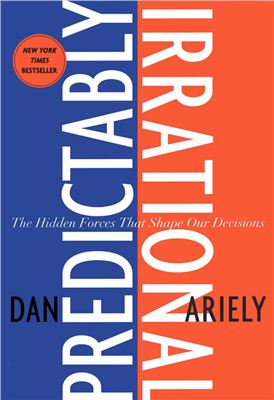Irrational behavior is a part of human nature, but as MIT professor
Ariely has discovered in 20 years of researching behavioral
economics, people tend to behave irrationally in a predictable
fashion. Drawing on psychology and economics, behavioral economics
can show us why cautious people make poor decisions about sex when
aroused, why patients get greater relief from a more expensive drug
over its cheaper counterpart and why honest people may steal office
supplies or communal food, but not money. According to Ariely, our
understanding of economics, now based on the assumption of a
rational subject, should, in fact, be based on our systematic,
unsurprising irrationality.
Ariely argues that greater understanding of previously ignored or misunderstood forces (emotions, relativity and social norms) that influence our economic behavior brings a variety of opportunities for reexamining individual motivation and consumer choice, as well as economic and educational policy. Ariely's intelligent, exuberant style and thought-provoking arguments make for a fascinating, eye-opening read.
Ariely argues that greater understanding of previously ignored or misunderstood forces (emotions, relativity and social norms) that influence our economic behavior brings a variety of opportunities for reexamining individual motivation and consumer choice, as well as economic and educational policy. Ariely's intelligent, exuberant style and thought-provoking arguments make for a fascinating, eye-opening read.

